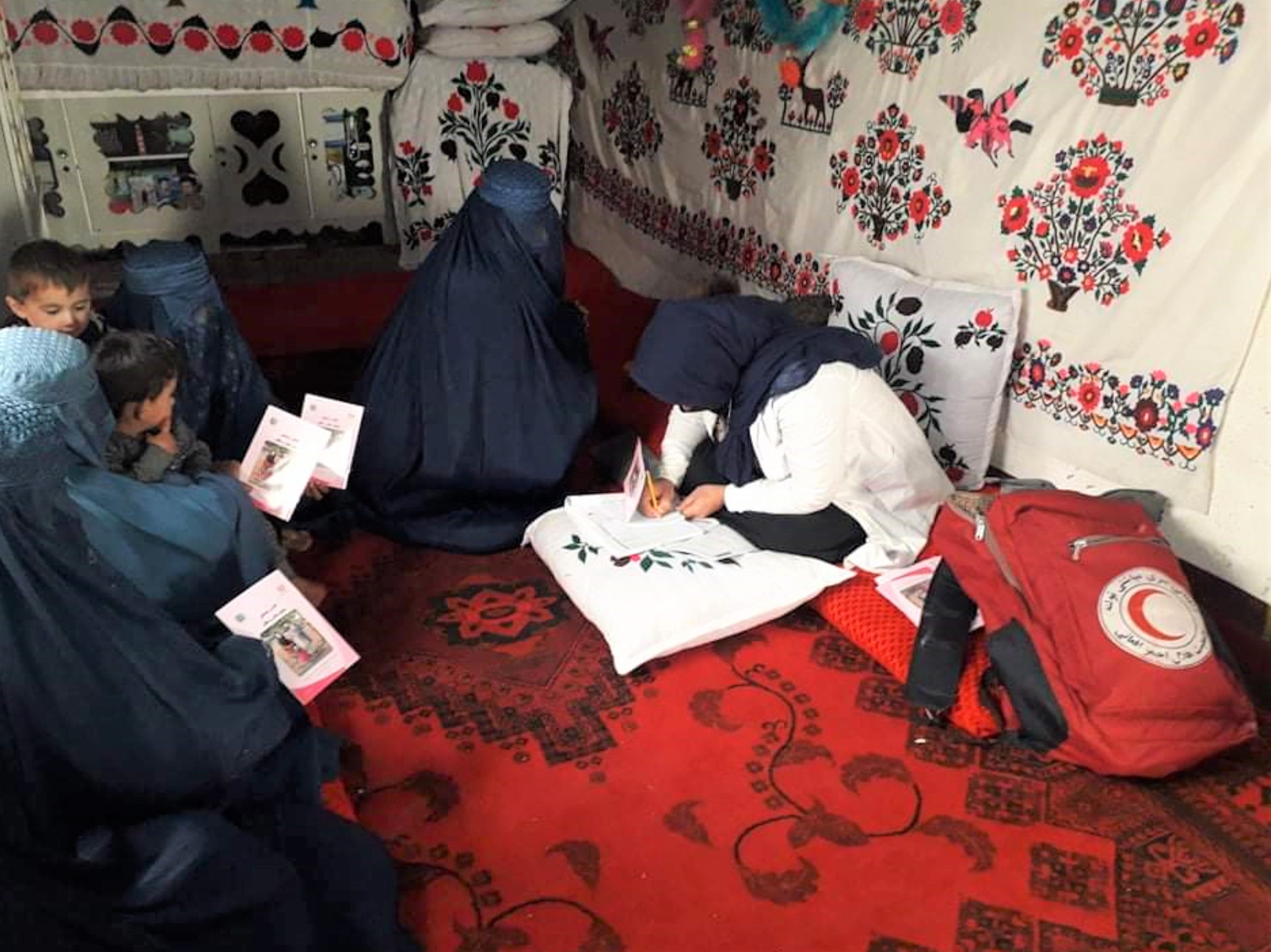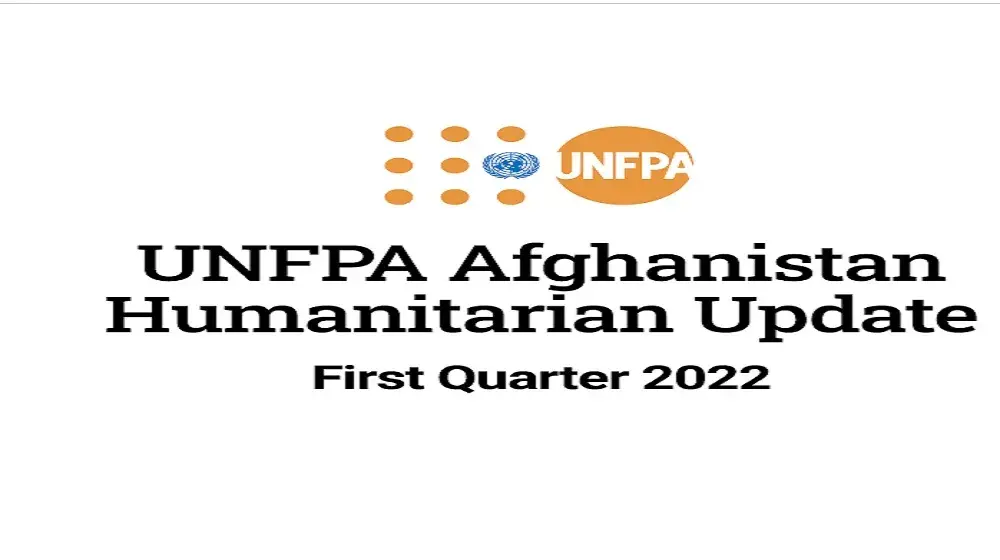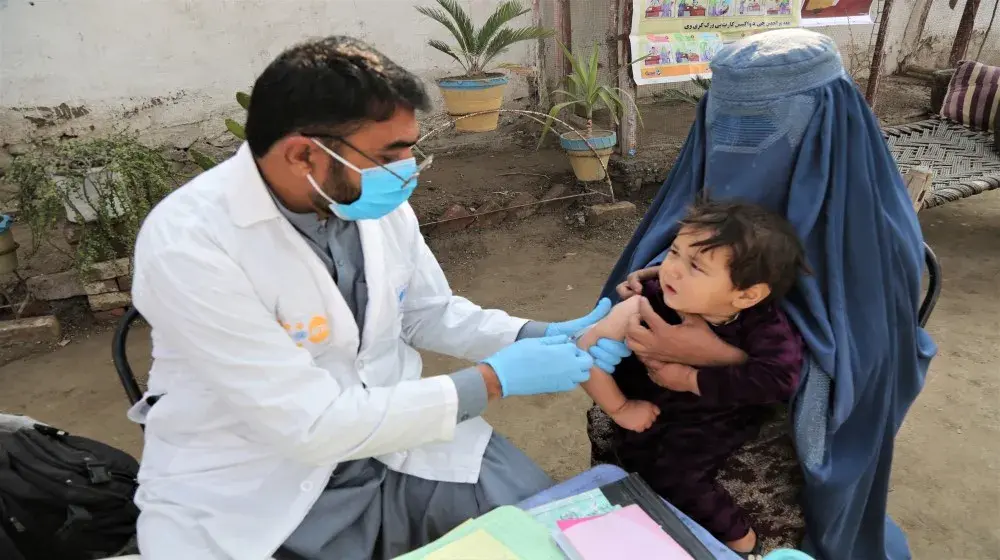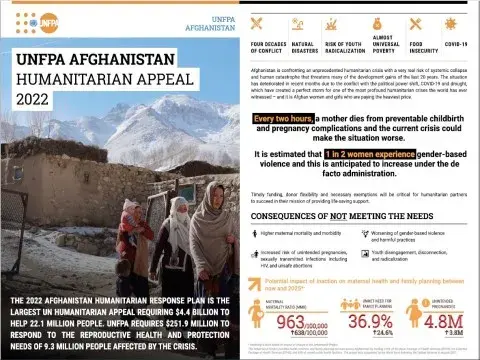Afghanistan is a vast country with 76 percent of the population living in rural areas. Of these, 10 percent live in hard to reach and remote regions. To reach our destination, we have to travel on unpaved roads, pass along climate change impacted river and water paths, and cross high mountains. We are in Badakhshan, Afghanistan’s northern most and largest province which borders People’s Republic of China along the Wakhan corridor. Our target is to reach the needy and vulnerable pregnant women in rural Badakhshan province. However, it’s not only the transportation and access that poses a challenge along the route. We face various challenges as security threats are high and natural disasters have impacted the landscape.
In the first quarter of 2020, when the COVID-19 first reached Afghanistan, the spring floods were perceived as a more immediate disaster that threatened the lives of thousands of people in Shahre Buzurg district of Badakhshan province. The committed Mobile Health Team (MHT) accepted the risk and persevered to serve people in this district.
While the MHT was in Shaikhan village providing support, Jan Bibi (42), visited the MHT seeking support. After a physical examination and recording of her history the MHT’s midwife found that Jan Bibi was in her 31st week of pregnancy. “I found that Bibi was suffering from chronic anemia and she needed to be counselled for an immediate change in diet. I provided her with a number of ferrous folic acid tablets”, said Friba Delaway, the midwife of MHT. “I knew she was very vulnerable and needed my support, so I gave her my contact number and told her to contact me when needed”.

The MHT is very mobile, constantly moving from one village to another. It is not always accessible when needed. As such, the best solution is contacting the team as an alternative method through which to receive support.
Jan Bibi is the mother of eight kids (5 daughters and 3 sons). When she came to the MHT, it a was her ninth pregnancy. Her husband, Niamullah (45), is a farmer. However, the severe poverty in this mountain covered district, has resulted that the children have work with their father on the farm in order to eke out a basic survival.
Jan Bibi said that there is a lack of any health facility in their village and she can’t go to the district clinic because it is too far away and the cost of transport too high. “Due to flash floods, the roads and bridges are destroyed. If I want to go to the district clinic, I have to pay AFN 4,000 (about $50) which is impossible for my family,” she said. “I’m grateful that I have access to the MHT and there’s midwife in the team who supports me”.
Jan Bibi used to call the midwife, Friba regularly and asked for advice and consultations. After her first visit, she visited the MHT three more times to ensure her baby was safe and receiving the necessary antenatal care. She was provided with the requisite consultation and support. When she required medicine, UNFPA was able to provide via the delivery kit during her visits.
“When the MTH was in a remote village, I received a call from Bibi. She was worried about her critical situation and needed my support. At the time, I was busy with serving other women, however, I knew I had to travel to Shaikhan village [where Bibi was based] to ensure Bibi and her baby are safe,” Friba said. “When I arrived at her village and examined Bibi, I found that she is suffering from anemia, high blood pressure, and fever.”
Although several hours passed with pain and difficulties, it was the right time when the midwife, Friba arrived to Bibi’s house. “I found it’s the delivery time and I started my work and helped her to deliver the baby, fortunately and finally, the baby boy was born safely,” Friba told.
The baby’s father, Niamtullah, expressed his gratitude for the MHT. “We really needed the support at such a critical time. The team helped my wife and the safe delivery of our new baby,” he said. “I was not able to take my wife to the district hospital, if you [the MHT and midwife] had not been here, the lives of my wife and baby would’ve been at further risk and we don’t know what would have happened. I thank the MHT for supporting my wife and baby.”
The MHT engages in health service provision on various levels such as diagnosis and treatment of general health problems, antenatal care, postnatal care, family planning services, assisting home based deliveries, provision of vaccination services for child bearing aged women and under five-year children, health promotion education, referral of chronic diseases, nutrition status screening, and psychosocial support and counselling.
Supporting vulnerable women and serving pregnant mothers such Jan Bibi is the daily mission of the MHTs on the ground. “Despite the security and access problems, I’m committed to my mission and continue to support these vulnerable women”, Friba says. “COVID-19 is an additional life-threatening risk, but I follow the infection prevention measures and try my best to help the women who expect and need my support.”
The MHT that operates in this area has five members including a medical doctor, midwife, nurse (who also serves as a vaccinator), pharmacist, and a driver. In the first half of 2020, this MHT team provided health services in 23 villages, providing direct services to 1,840 families. The total estimated population being covered through this intervention is 13,000, including 2,600 child-bearing aged women, and over 500 pregnant women. The MHT in Shahre Buzurg District of Badakhshan is operated by the Afghan Red Crescent Society and jointly supported by Australia’s Department of Foreign Affairs and Trade and UNFPA Afghanistan.
Story by: Zaeem Abdul Rahman





